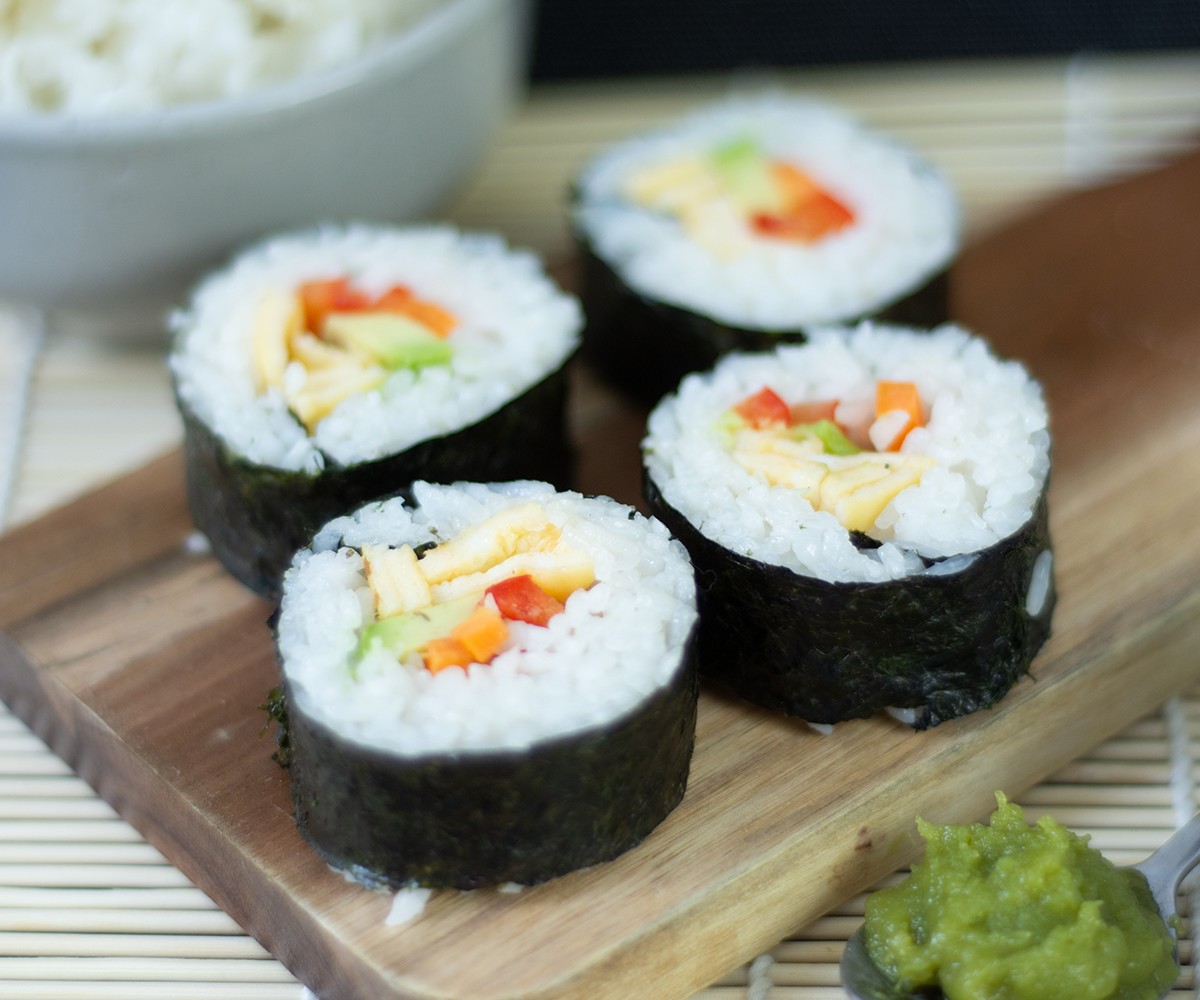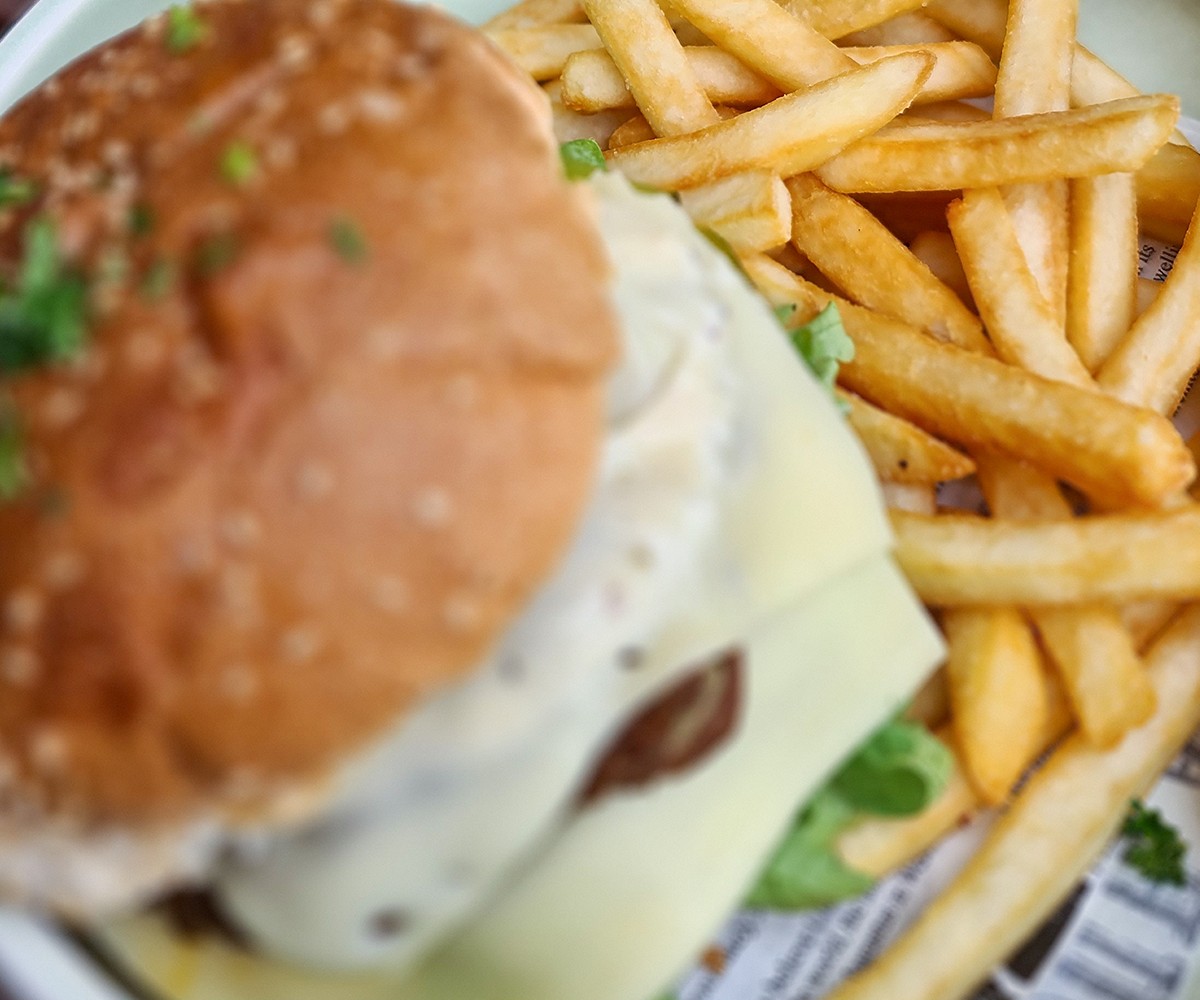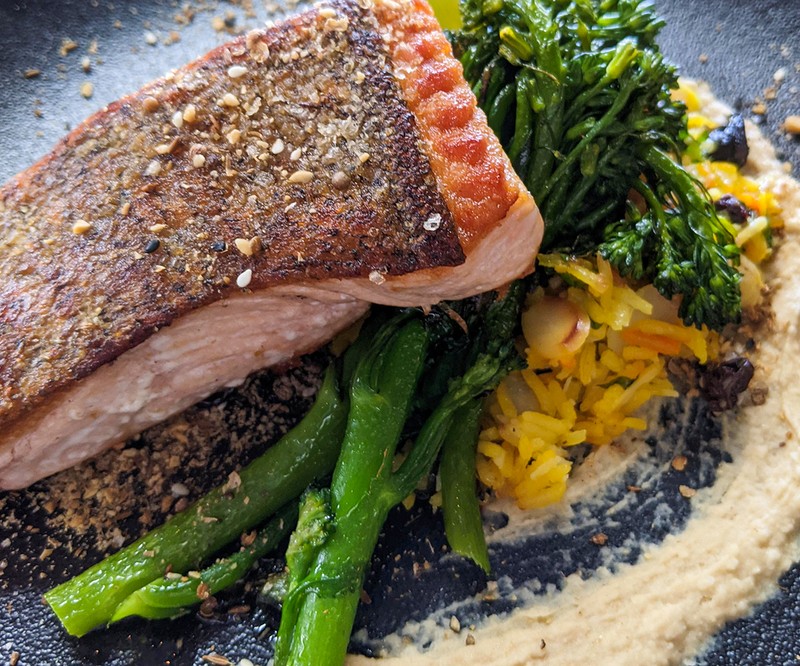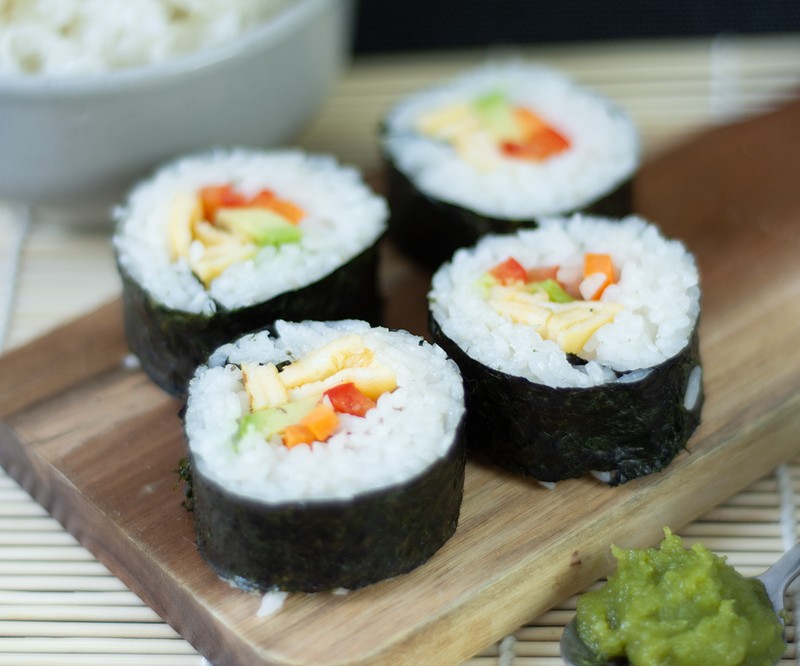Is Sushi Making You Fat?

Is sushi good for weight loss?
The issue with sushi is that in a single-serve it can be:
- High in calories
- High in fat
- Low in protein
To give you an indication, one large sushi roll from a popular Australian supermarket (that is cut into 12 small pieces) packs the following macronutrients:
- Protein: 12 grams
- Total Fat: 4.2 grams
- Carbohydrates: 47 grams
Now that's a low amount of protein for a rather high 47 grams of carbs. But again, as we've been through on this blog in multiple posts before, carbohydrates simply DON'T make you fat.
But for someone who can consume only 150 grams of carbohydrates as part of their weight loss diet, this is a significant amount (one third).
And there's not enough protein here in this hypothetical lunch: we need to consume 2.3 - 3.1 grams of protein per kilogram of fat-free mass per day when it comes to weight loss. This high amount of protein is for many reasons, including its satiety benefits.
But this is just one example.
High-calorie sushi makes fat loss hard
Consider a smaller salmon sushi hand roll from this same popular Australian supermarket has:
- Protein: 4 grams
- Total Fat: 5 grams
- Carbohydrates: 23 grams
For context, one of the rolls below is roughly the size we're talking about.
Research suggests we need between 20-24 grams of protein per meal for muscle growth. And given we know the importance of protein for weight loss as outlined above, we'd need 5 handrolls to reach 20 grams of protein. So, our macronutrient intake would be:
- Protein: 20 grams
- Total Fat: 25 grams
- Carbohydrates: 115 grams
So, you can see why this is a nightmare for our macronutrients as part of a weight-loss diet, as for the vast majority of us, 115 grams of carbohydrates would be a significant portion of our daily carbohydrate allowance.

And it gets more challenging, too. Sometimes the protein sources and the sauces used pack lots of calories. For example, a prawn tempura roll contains 508 calories per roll. The prawn is breaded and fried, which adds more flavour (and calories!).
And to put this into perspective: many women have a weight loss calorie limit of 1500 calories, so that's a third of their intake, in one roll!
The macronutrient breakdown of a prawn tempura roll is:
- Protein: 20 grams
- Total Fat: 21 grams
- Carbohydrates: 64 grams
Now that's great in the sense that we're hitting our protein numbers. But the issue is that it's just too easy to consume. Many of us end up eating more sushi along with it -- more calories we don't realise we're getting.
The common misconception is that if it's "healthy", it surely is low calorie. But that just isn't the case with sushi.
To illustrate this more, let's take a McDonald's Big Mac, which has 550 calories (just 42 more calories than the prawn tempura roll). It is a fast-food item that's vilified in pop culture and has a macronutrient breakdown of:
- Protein: 25 grams
- Total Fat: 30 grams
- Carbohydrates: 45 grams
Now let's be clear: we're not saying a Big Mac is better than sushi every day. We're simply saying that food that is perceived to be "healthy" like sushi (which contains beneficial micronutrients) can have only 42 fewer calories than a food that is perceived to be very "unhealthy."

How to eat sushi for weight loss
So, what do we do, stop eating sushi?
Absolutely not.
Like any food on the planet, it has a place in our weight loss diet, we just need to know how to incorporate it.
For example, a home-made chicken salad and spinach can have a macronutrient breakdown of:
- Protein: 25 grams
- Total Fat: 5 grams
- Carbohydrates: 11 grams
And then we can add our aforementioned supermarket handroll in, for:
- Protein: 4 grams
- Total Fat: 5 grams
- Carbohydrates: 23 grams
Giving us a total of:
- Protein: 29 grams
- Total Fat: 10 grams
- Carbohydrates: 34 grams
And that's a far healthier dose of protein, with less fat, and moderate carbohydrates; even someone who can only eat 120 grams of carbohydrates a day on a fat loss diet.
The point is, you'll be full after this sushi roll following your salad.
But it's a lot harder to be full when you're sitting at a conveyor belt of sushi, all the plates coming past as you consume high calories, roll after roll, after roll!
The bottom line is that sushi can make up part of a healthy weight loss diet. But just because of its micronutrient content and "healthy" status in pop culture, doesn't mean it isn't high in calories. Sushi rolls contain quite minimal protein and a high amount of carbohydrates, with us needing in some cases five sushi hand rolls to reach an adequate protein intake for muscle growth and satiety.
In a weight-loss diet, a small amount of sushi can be consumed in concert with a low-calorie meal high in protein.
References:
- Helms ER, Zinn C, Rowlands DS, Brown SR. A systematic review of dietary protein during caloric restriction in resistance trained lean athletes: a case for higher intakes. Int J Sport Nutr Exerc Metab. 2014 Apr;24(2):127-38. doi: 10.1123/ijsnem.2013-0054. Epub 2013 Oct 2. PMID: 24092765.
- Hosomi R, Yoshida M, Fukunaga K. Seafood consumption and components for health. Glob J Health Sci. 2012;4(3):72-86. Published 2012 Apr 28. doi:10.5539/gjhs.v4n3p72
- Paddon-Jones D, Westman E, Mattes RD, Wolfe RR, Astrup A, Westerterp-Plantenga M. Protein, weight management, and satiety. Am J Clin Nutr. 2008 May;87(5):1558S-1561S. doi: 10.1093/ajcn/87.5.1558S. PMID: 18469287.
- Schoenfeld BJ, Aragon AA. How much protein can the body use in a single meal for muscle-building? Implications for daily protein distribution. J Int Soc Sports Nutr. 2018;15:10. Published 2018 Feb 27. doi:10.1186/s12970-018-0215-1
- Shintani TT, Beckham S, Brown AC, O'Connor HK. The Hawaii Diet: ad libitum high carbohydrate, low fat multi-cultural diet for the reduction of chronic disease risk factors: obesity, hypertension, hypercholesterolemia, and hyperglycemia. Hawaii Med J. 2001 Mar;60(3):69-73. PMID: 11320614.
















































